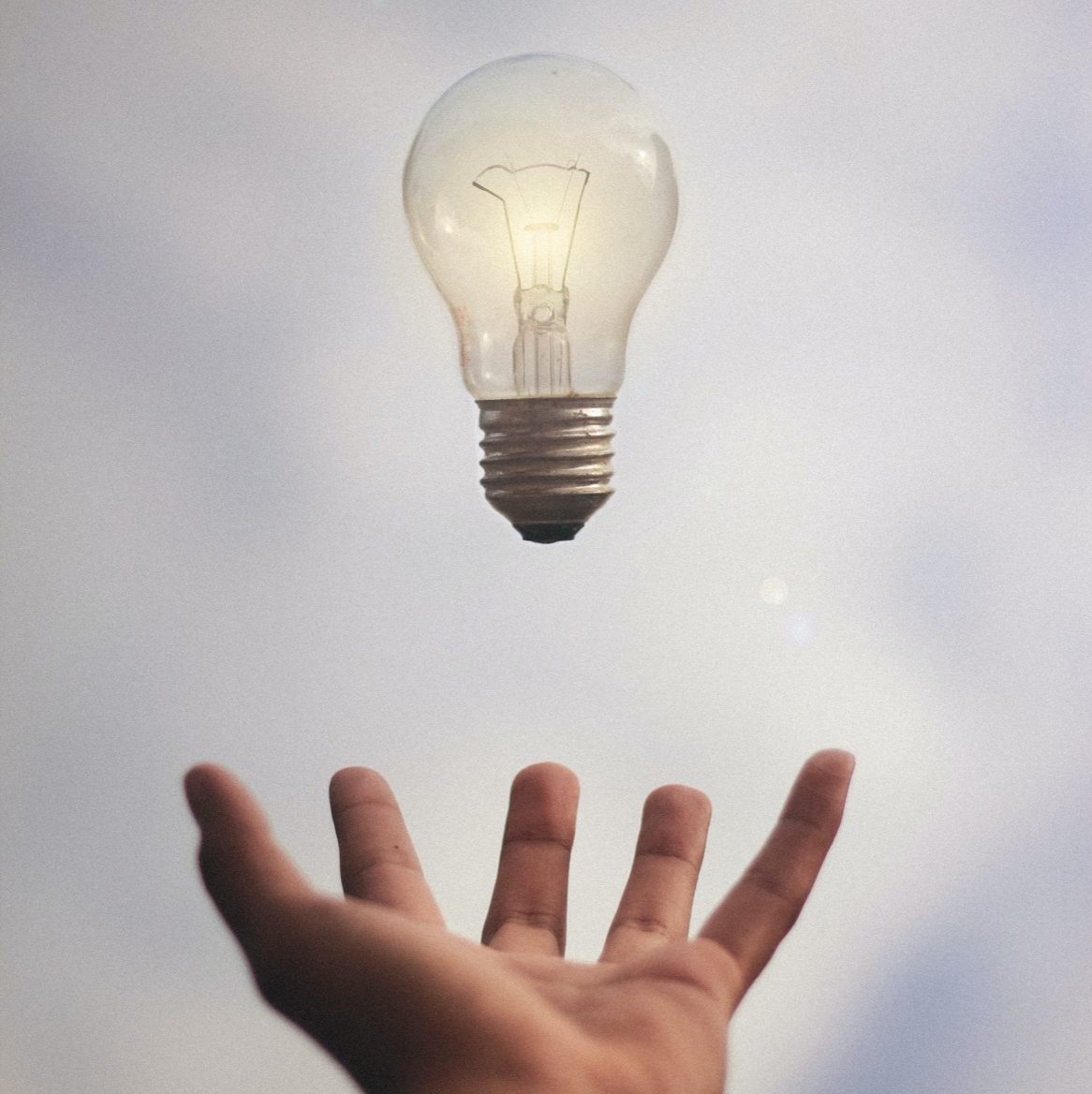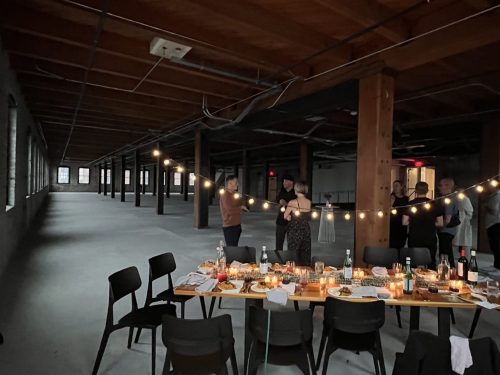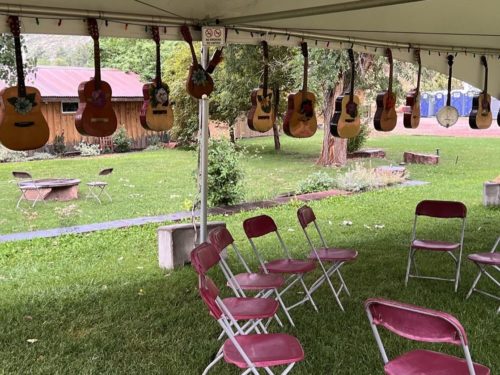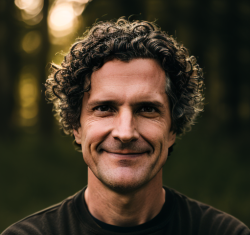
Intuition feels like magic
It’s that effortless clarity that transcends logic. Somehow you know when conditions are just right. Next steps are obvious. You take courageous action, but courage hardly seems necessary.
You’re simply doing what needs to be done.
When was the last time you felt and followed this magical sense?
It should probably be more often.
Forbes calls intuition our highest form of intelligence. Albert Einstein believed society should flip its relationship with intuition:

The intuitive mind is a sacred gift and the rational mind is a faithful servant. We have created a society that honors the servant and has forgotten the gift.
Where does intuition come from?
As living organisms, we receive information from many sources. Intuition synthesizes them. I’ve found these to be especially helpful when coaching:
- Somatic: what is your body sensing?
- Emotional: what are your emotions feeling?
- Cognitive: what does your mind think?
- Behavioral: what actions are you inclined to take?
- Ontological: what do you believe about yourself?
Our greatest illusion is to believe that we are what we think ourselves to be.
~H. F. Amiel, The Private Journal as quoted by Timothy D. Wilson in Strangers to Ourselves: Discovering the Adaptive Unconscious
The problem of over-cognition
Unfortunately, we over-rely on cognitive information. In fact, I’d say many of us are addicted to cognitive information. Modern life makes it easy to consume useless cognitive data. It’s like mental candy, full of “empty calories.” This can be both distracting and harms decision-making.
Most of us think “data” refers only to cognitive facts, like quantities, speeds, weights, and dates. Things you can Google or measure with instruments.
Data comes in many forms. We make our best decisions when we access the non-cognitive information available to us.
Looks good on paper
You probably remember a time when something “looked good on paper, but…”
You had a decision to make. You considered the logical pros and cons. There seemed to be a clear “winner.” But something inside didn’t feel right. How did you know whether to “trust your gut” or go with the calculation?
You had to make sense of the non-cognitive signals you were getting.

Non-cognitive data is rich in insight
Here are some examples of the richness of non-cognitive data.
The body reveals otherwise hidden links between our moods, memories, and current challenges. Emotions let us know when our needs are not being met, or if we’re feeling out of alignment with our values. Behavioral data illuminates underlying assumptions we hold about how to influence life. Ontological information helps us uncover the root “drivers” of our behavior.
Intuition emerges from the synthesis of all these types of information.
(And probably others! In his fascinating book Strangers to Ourselves, Timothy D. Wilson explores how we function through complex processes “that are inaccessible to consciousness but that influence judgments, feelings, or behavior.”)
Intuition is not like deduction and analysis. It’s more like a property that emerges effortlessly. It’s a non-conscious discernment that happens when we accumulate information holistically.
Stewardship, wealth, philanthropy...and intuition?
If you’re in a conversation about wealth and philanthropy for 15 minutes, someone is likely to use the word “stewardship.”
Family trust companies build reputations as prudent stewards of their clients’ wealth. Stewardship is at the heart of noblesse oblige, the idea that those with wealth have a responsibility to serve the common good. Philanthropies are meant to “steward” charitable funds through the lens of a donor’s intent.
Cognitive information is over-emphasized in these situations too.
This is understandable. When you’re caring for large sums of money, especially if it’s someone else’s money, you want to be known as logical, dependable, serious, and prudent. You’re expected to provide an analysis that illustrates the return on investment.
No one asks you, “so, how does investment X feel in your body?”
But they should.
In complex systems like our modern world, there is no equation to follow that guarantees an outcome. You need different perspectives and different types of knowing. You make judgment calls based on limited data. You improvise.
All of this is strengthened by intuition.
We are better philanthropic stewards we we attune to many types of information and develop intuition as part of our decision making.

Intuition learns
Intuition isn’t omniscience. It needs to be developed.
For example, it’s easy to confuse intuition with desire. We can fool ourselves into believing that a “sixth sense” is telling us to do the thing we actually want for other reasons (to assuage our insecurity, need to be loved, need to belong, etc.).
Intuition still makes mistakes. It takes practice. I doubt you ever really “master” it.
But intuition learns too. Over time, it can grow into a powerful aspect of your wisdom journey.
As your intuition develops, it’s easier to relax and have greater trust in what is unfolding in your life. It greatly reduces worry, self-doubt, and negative self-talk. It attunes you with larger forces that are working on your behalf.
Try this
Here’s a simple exercise to strengthen your intuition. It can help initiate a “flow state,” where time flies by, but you don’t feel rushed. You are productive without becoming exhausted.
- Commit to spending a morning following your intuition. (Or a day…or a week!)
- Try a new process to decide how to spend your allotted time. Instead of making a schedule, prioritizing tasks, or creating a to-do list, ask yourself “sensing” questions, like:
What activities feel most energizing to me?
What am I most called to do?
What do I feel ready for now?
What can I do joyfully?
3. Do the activities that you feel most intuitively drawn to. When you’re finished, ask yourself the questions again. Don’t be afraid to say “yes” to activities like going for a walk, resting for a few minutes, or calling a friend.
4. When the allowed time is complete, reflect on the experience. What did you do? How did it feel? What did you learn? How might you continue developing your intuition?
Subscribe to my newsletter.
I try to send one per week. But I’m committed to not being mechanistic about it.
Life happens in cycles and so does my newsletter energy.





I enjoyed reading your article about intuition.
Thanks for saying that, Victoria! I hope all is well in your world. ✌
I am doing this today. Stay tuned.